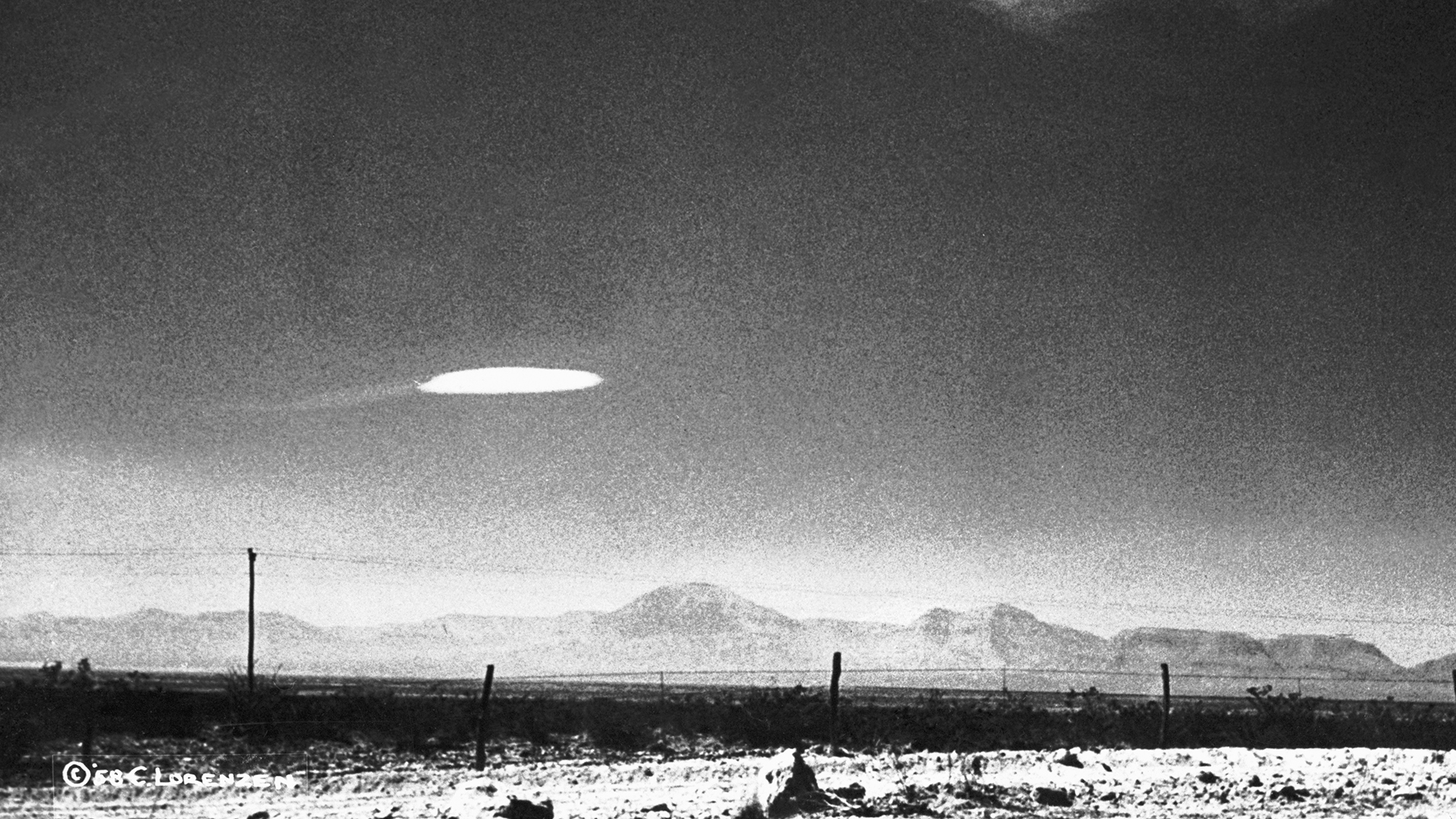Most UFOs are 'Chinese surveillance' drones and 'airborne clutter,' Pentagon officials reveal
The U.S. government has officially started to explain some of the most infamous UFO encounters of the last decade, with China and weather balloons as top offenders.

Intelligence agencies in the U.S. have spent the last few years analyzing footage of hundreds of recent UFO encounters, and they want the American people to know: It's still not aliens.
According to several U.S. Department of Defense (DoD) officials who spoke anonymously to The New York Times last week, many recent sightings of UFOs — or unidentified aerial phenomena (UAPs), as the government prefers to call them — are likely just observations of foreign surveillance operations or airborne clutter, such as weather balloons.
Several UAP incidents have been officially identified as "relatively ordinary" Chinese surveillance drones, the anonymous officials said. China has previously stolen plans for advanced U.S. fighter planes, and is interested in how the U.S. trains its pilots, the DoD officials added.
Other UAP sightings recorded by military aircraft, which appear to show airborne objects moving in seemingly physics-defying ways, are likely the results of optical illusions. This includes the infamous video known as "GOFAST," which was recorded by a U.S. Navy aircraft and leaked to the media in 2018. (The video, along with two other leaked films of military encounters with UAPs, was eventually declassified by the government.)
While the object in the GOFAST video appears to be zooming over the water at incomprehensible speeds, this is just an optical illusion created by the angle of the recording relative to the water, the DoD officials told The Times. In reality, the object is moving at no more than 30 mph (48 km/h), the officials added.
A classified UAP report delivered to Congress this week by the DoD's intelligence agencies likely includes the findings reported by The Times. The new report adds new details to cases described in a document that officials publicly released in June 2021, describing 144 alleged UAP incidents reported by U.S. government personnel between 2004 and 2021.
The 2021 report acknowledged that, due to a lack of high-quality data, most alleged UAP encounters could not be conclusively explained. However, the report offered several blanket explanations for UAP in general, including "technologies deployed by China, Russia, another nation, or a non-governmental entity," as well as "airborne clutter" such as birds and weather balloons.
Sign up for the Live Science daily newsletter now
Get the world’s most fascinating discoveries delivered straight to your inbox.
Nowhere in the report were aliens or extraterrestrials mentioned — however, that did not stop alien conspiracy theories from arising, due in part to the government's general lack of transparency about UAP incidents.
Sue Gough, a DoD spokesperson, told The Times that the government was committed to sharing whatever UAP information it could without putting national security at risk. Government officials also tend to refrain from discussing UAP incidents publicly because there is simply not enough data to conclusively explain them, Gough added.
"In many cases, observed phenomena are classified as 'unidentified' simply because sensors were not able to collect enough information to make a positive attribution," Gough told The Times. "We are working to mitigate these shortfalls for the future and to ensure we have sufficient data for our analysis."
As the DoD continues its investigation into UAP sightings, NASA has also launched an independent UAP study team, which will operate from October 2022 to mid-2023. According to NASA, the team will focus on collecting and analyzing as much UAP data as possible, in order to develop new methods for identifying the unidentifiable objects in America's skies.

Brandon is the space/physics editor at Live Science. His writing has appeared in The Washington Post, Reader's Digest, CBS.com, the Richard Dawkins Foundation website and other outlets. He holds a bachelor's degree in creative writing from the University of Arizona, with minors in journalism and media arts. He enjoys writing most about space, geoscience and the mysteries of the universe.










